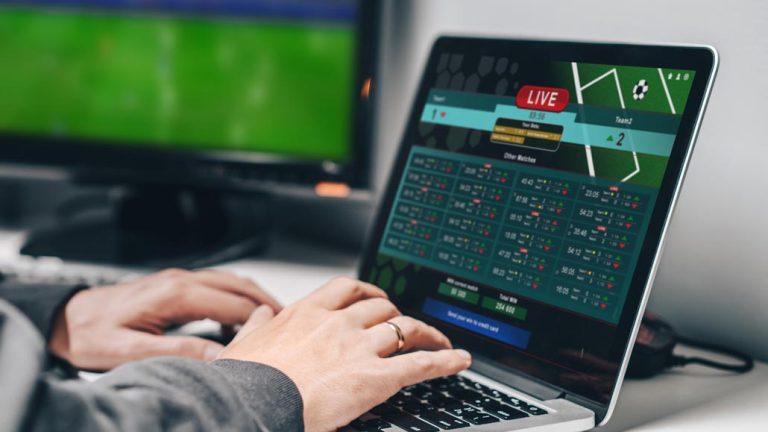Our bodies are detailed systems that in some cases exhibit signs of pain or ailment. One typical concern several people experience is the sensation of inflamed or tender lymph nodes. While this can be unnerving, it is necessary to acknowledge that lymph nodes play an important duty in our immune system and can come to be inflamed or unpleasant for various factors. In this interesting short article, we will certainly explore the primary root causes of lymph node discomfort, supply understandings on when to seek clinical attention, and recommend potential solutions for alleviation.
What Are Lymph Nodes and Their Feature?
Lymph nodes are little, bean-shaped frameworks spread throughout the body. They become part of the lymphatic system, which is an interconnected network of vessels and organs responsible for filtering and preserving our physical fluids. A healthy and balanced lymphatic system aids combat infections, store immune cells, and remove waste items from tissues.
Lymph nodes function as filters, capturing dangerous compounds such as microorganisms, viruses, and uncommon cells. When a virus or foreign material goes into the body, lymphocytes, a type of leukocyte, gather in the affected lymph nodes to combat the infection. This immune feedback can bring about recognizable swelling or tenderness in the area.
While lymph nodes are present throughout the body, they are more quickly felt in particular areas such as the neck, armpits, and groin. The dimension and structure of lymph nodes can vary, however any type of notable modifications, such as pain or enlargement, must be examined to determine the underlying reason.
Usual Sources Of Lymph Node Discomfort
There are numerous potential reasons that your lymph nodes may be harming. Understanding these causes can help you identify whether the pain is likely a result of a benign condition or if more medical attention is essential.
1.Infections: The most typical cause of inflamed and uncomfortable lymph nodes is an infection. This can include viral, microbial, or fungal infections. Instances consist of the common cold, strep throat, mononucleosis, and tuberculosis. The presence of an infection sets off an immune feedback, causing inflammation and tenderness in the matching lymph nodes.
2.Injury or injury: Lymph nodes can also become excruciating if they are injured somehow. This could be due to external injury, such as a cut or impact to the area, or interior injury, like damage from surgical treatment or radiation treatment. The pain might be localized to the details website of injury or can radiate to nearby lymph nodes.
3.Inflammatory conditions: Certain inflammatory problems, such as rheumatoid arthritis or lupus, can trigger lymph nodes to swell and become tender. These problems involve an over active immune response, bring about chronic swelling throughout the body.
4.Cancer: Sometimes, lymph node discomfort can indicate an underlying malignant problem. When cancer cells spread out from their original area, they can go into the lymphatic system and gather in neighboring lymph nodes. As a result, the impacted lymph nodes might become bigger, agonizing, or really feel tough to the touch.
- Non-Hodgkin lymphoma: This is a kind of cancer cells that impacts the lymphatic system, causing irregular cell development in lymphocytes. Non-Hodgkin lymphoma can manifest as puffy lymph nodes, exhaustion, unexplained weight loss, and night sweats.
- Hodgkin lymphoma: This is an additional kind of lymphatic system cancer cells characterized by the presence of Reed-Sternberg cells. Hodgkin lymphoma can bring about pain-free swelling of lymph nodes, fatigue, itchy skin, and fever.
- Bust cancer or melanoma: Both bust cancer and melanoma can infect close-by lymph nodes, triggering them to become tender, inflamed, or set.
It is necessary to keep in mind that while lymph node discomfort can be an indicator of cancer cells, it is not the sole component. The majority of situations of lymph node discomfort are because of benign and treatable reasons. However, if you have any type of worries or discover relentless signs and symptoms, it is vital to speak with a medical care professional for an accurate diagnosis.
When Should You Seek Clinical Interest?
While lymph node discomfort is frequently a short-term pain that settles by itself, there are circumstances where clinical focus is required. Here are some scenarios where you need to think about speaking with a medical care professional:
1.Relentless discomfort or swelling: If your lymph nodes stay puffy and agonizing for more than 2 weeks with no indications of renovation, it is advisable to look for clinical recommendations. Relentless signs might indicate a hidden infection, inflammation, or various other health and wellness worries.
2.Unusual fat burning or evening sweats: If you experience inexplicable weight management, evening sweats, or severe exhaustion gone along with by lymph node pain, it is essential to consult a health care expert. These signs and symptoms can be indications of various problems, consisting of cancer cells.
3.Adjustments in lymph node attributes: If you notice significant modifications in the size, structure, or number of lymph nodes, it is essential to have them examined. Tough, immovable, or quickly expanding lymph nodes warrant clinical focus, varilux premium as they may potentially indicate a much more serious underlying problem.
Remedies for Lymph Node Pain
If your lymph nodes are triggering discomfort, there are several actions you can take to minimize the discomfort and promote healing:
- Relax and self-care: Sometimes, lymph node discomfort can be an outcome of a moderate infection or fatigue. In such cases, obtaining appropriate remainder, remaining hydrated, and exercising great hygiene can aid in recuperation.
- Cozy compress: Using a warm compress to the damaged location can help in reducing swelling and relieve discomfort. Ensure the compress is not too hot to prevent burns.
- Over-the-counter pain relievers: Non-prescription pain relievers, such as acetaminophen or advil, can assist alleviate mild to modest lymph node pain. Nonetheless, it is necessary to follow the recommended dosage and speak with a health care expert if signs and symptoms get worse or linger.
- Deal with underlying conditions: If the lymph node discomfort is an outcome of an infection or inflammatory problem, treating the underlying reason can assist relieve the linked signs. It is recommended to adhere to any proposed medications or treatments as directed by a health care expert.
Remember, these remedies are not indicated to replace specialist medical suggestions. If your signs intensify or continue, it is essential to speak with a healthcare professional for an exact medical diagnosis and ideal treatment.
Verdict
Lymph node pain can be a discomforting experience, but most of the times, it is a normal part of our body’s immune reaction. Comprehending the reasons for lymph node pain, identifying when to seek medical attention, and executing suitable solutions can aid relieve discomfort and ensure total wellness. If you have any type of concerns or questions, it is constantly best to consult a medical care expert who can give individualized advice tailored to your specific situation.






